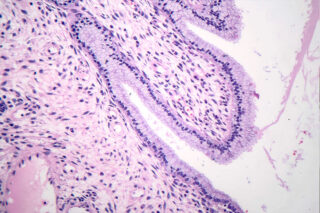Nasal Polyps Dallas, Arlington, Fort Worth
Understanding Nasal Polyps: Symptoms, Causes, and Treatment Options
Nasal polyps, though relatively common, are often misunderstood. These non-cancerous growths on the lining of the nasal passages can cause discomfort and disrupt daily life. In this article, we’ll delve into what nasal polyps are, explore common symptoms, and discuss effective treatment options.

What are Nasal Polyps?
Nasal polyps are soft, painless, non-cancerous growths that develop on the lining of the nasal passages or sinuses. These teardrop-shaped masses result from chronic inflammation and typically appear in
clusters. While small nasal polyps may not cause noticeable symptoms, larger ones can obstruct normal breathing and contribute to a variety of health issues.
General Information on Nasal Polyps
The exact cause of nasal polyps is not fully understood, but they are often associated with chronic inflammation of the nasal passages. Conditions such as asthma, chronic sinus infections, allergies, and cystic fibrosis may contribute to the development of nasal polyps. These growths can affect people of any age, but they are more commonly found in adults, particularly those over the age of 40.
Common Symptoms of Nasal Polyps
Recognizing the symptoms of nasal polyps is crucial for early diagnosis and effective management. Common signs include:
- Nasal Congestion: Persistent stuffiness and difficulty breathing through the nose.
- Runny Nose: Excessive nasal discharge that may be clear, yellow, or green.
- Decreased or Loss of Sense of Smell: Nasal polyps can obstruct the sense of smell.
- Facial Pain or Pressure: Discomfort around the eyes, forehead, or cheeks.
- Snoring or Sleep Apnea: Larger polyps can contribute to sleep disturbances.
If you experience these symptoms, it’s essential to consult with a healthcare professional for a proper diagnosis.
Treatment Options for Nasal Polyps
Managing nasal polyps often involves a combination of medical and surgical interventions. Here are some common approaches:
- Nasal Corticosteroids: These prescription or over-the-counter medications help reduce inflammation, shrink nasal polyps, and alleviate symptoms.
- Antihistamines: In cases where allergies contribute to nasal polyps, antihistamines may be recommended to control allergic reactions and prevent further growth.
- Decongestants: These medications can provide temporary relief by reducing nasal congestion, making it easier to breathe.
- Surgery: In cases where medications are ineffective or when nasal polyps are large, surgery may be recommended to remove the growths. Endoscopic sinus surgery is a common and minimally invasive procedure.
- Biologics: For severe cases, biologic medications may be prescribed to target specific pathways involved in inflammation.
Conclusion
While nasal polyps can be bothersome, proper diagnosis and timely intervention can significantly improve quality of life. Understanding the symptoms and seeking medical advice promptly are crucial steps toward effective management. Nasal corticosteroids, antihistamines, and decongestants offer non-surgical options, but in some cases, surgical removal may be necessary. Collaborate with your healthcare provider to develop a personalized treatment plan tailored to your specific needs. By taking proactive steps, you can breathe easier and regain control over your nasal health.
